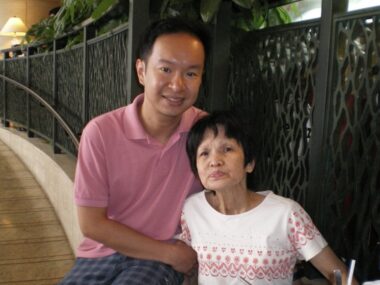There is no hierarchy of suffering in the world of rare illnesses
Our disease communities need to unite rather than compete
Written by |

My wife, Jill, recently challenged a sentiment she hears far too often: that people with Huntington’s disease should feel “grateful” it’s a slow-moving condition, unlike amyotrophic lateral sclerosis (ALS). Her reaction struck a deep chord in me and revealed an important truth about how we view devastating rare and chronic illnesses.
Diagnosed as gene-positive for Huntington’s in 2018, Jill understands intimately what lies ahead. Huntington’s has been described as a cruel combination of ALS, Parkinson’s, and Alzheimer’s disease. Unlike many conditions, Huntington’s is genetic, meaning that Jill grew up watching its impact on her family. This gave her a profound understanding of its progression long before her own diagnosis.
This family history has shaped her perspective on a troubling phenomenon in the chronic and rare illness community: the unspoken competition of “whose disease is worse.” As she explained to me, her voice tight with emotion, “Every illness is devastating because it impacts not just the person with the diagnosis, but everyone who loves them. There’s no hierarchy of suffering when it comes to any chronic or rare illness.”
What frustrates her most is the suggestion that different patient communities must compete for limited resources, attention, and support. She offered a haunting analogy: Imagine those old silent movies where someone is tied to railroad tracks.
“Whether the train is approaching slowly or barreling down the tracks at full speed,” she said, “the outcome remains the same if the person can’t get free.”
Her metaphor is devastatingly accurate. While conditions like Huntington’s and ALS may progress at different rates, patients and their families all face a race against time. The speed of the approaching train may vary, but the need for intervention, support, and hope remains equally urgent.
This competitive mindset ultimately harms everyone affected by a terrible illness. Rather than comparing conditions or suggesting that some patients should feel “lucky,” we should unite in advocating for increased funding, research, and support for all. Scientific breakthroughs often transcend their original focus, with research into one disease frequently yielding insights that benefit patients with other conditions.
Jill’s perspective serves as a powerful reminder that compassion and support shouldn’t be treated as finite resources to be rationed. Instead of drawing arbitrary lines between different diagnoses or suggesting hierarchies of suffering, we should combine our voices to fight for better outcomes for all patients.
The next time you’re tempted to compare one person’s struggle with another’s, remember Jill’s train tracks. Our energy is better spent working together to help everyone escape their circumstances, regardless of how quickly or slowly their particular challenges may be advancing. After all, the true measure of our society isn’t how we treat those facing the most urgent crises, but how we care for everyone in need.
Note: Huntington’s Disease News is strictly a news and information website about the disease. It does not provide medical advice, diagnosis, or treatment. This content is not intended to be a substitute for professional medical advice, diagnosis, or treatment. Always seek the advice of your physician or other qualified health provider with any questions you may have regarding a medical condition. Never disregard professional medical advice or delay in seeking it because of something you have read on this website. The opinions expressed in this column are not those of Huntington’s Disease News or its parent company, Bionews, and are intended to spark discussion about issues pertaining to Huntington’s disease.




dotti huber
My husband recently died from Huntington disease. HIS Mother died from Huntington his grandmother & aunt .. His symptoms were for the last 13 years slow is not always better. We didn't live like we would have if he hadn't been sick.He tried so hard and it was hard watching someone you love struggling every day.. It breaks your heart thousands and thousands of times...till your broken.. It is a horrible disease and until someone lives it they will never know. We were fortunate my husband was 78 when he died which is old for Huntington his mom was 82 when she passed.. But it was not easy at that age either... thanks for listening... dotti
Janet A Polizois
Carlos, what an excellent article. Jill’s analogy about the train tracks is so spot on. We all suffer this terrible disease; everyone is impacted when a loved one receives the diagnosis. Your words each week bring many aspects to light. You are both very brave to share your journey to help others. Thank you.